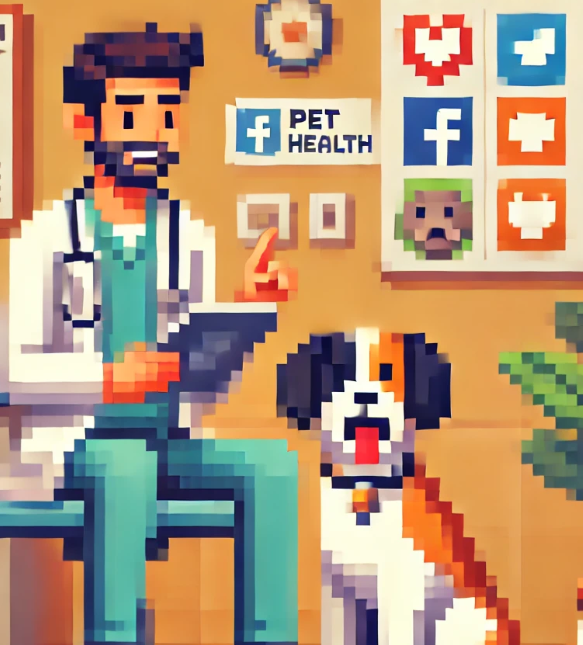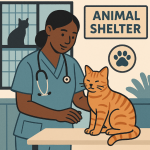
How Social Media Impacts Veterinary Practices: What Pet Owners Should Know
Did you know that your veterinarian might be using social media to connect with you and other pet owners? Platforms like Facebook are increasingly becoming a tool for veterinarians to share updates, educate clients, and even manage feedback. But what happens when complaints go online, and how do veterinarians handle them?
For pet owners, understanding how your vet uses social media—and what it means for your furry friend—can help you make informed decisions about their care. Let’s dive into the findings of a recent study exploring veterinarians’ attitudes toward Facebook, the challenges they face with online feedback, and what it all means for pet owners like you.
The Role of Social Media in Veterinary Practices
Social media platforms, especially Facebook, offer veterinarians an affordable way to engage with pet owners and promote their services. According to the study, veterinarians in Denmark and the UK are leading the charge, with about 90% of practices using Facebook to interact with clients. By contrast, only 40% of Austrian practices have an active presence on the platform, reflecting regional differences in digital engagement.
Why is this important? Social media lets veterinarians:
- Share helpful tips about pet health and wellness.
- Update clients on services, promotions, or emergencies.
- Build trust through transparency about procedures and patient care.
For pet owners, this means easier access to information about your vet’s practice and the ability to engage directly with them online.
Complaints Go Digital: The Challenges Veterinarians Face
While social media offers many benefits, it also opens the door to online complaints. The study found that the most common grievances across all three countries—Austria, Denmark, and the UK—are about treatment costs. Other frequent complaints include communication issues, long wait times, and disagreements over medical advice.
Veterinarians handle these complaints in various ways:
- Responding to feedback: Many vets choose to address concerns directly, either online or in person. This approach shows care and professionalism, fostering stronger client relationships.
- Ignoring or deleting complaints: A smaller group of veterinarians opts to ignore or delete negative comments, though this can sometimes escalate the issue.
- Relying on others: In the UK, where corporate veterinary chains are common, many employed vets are not directly responsible for managing complaints, leaving this to practice managers.
For pet owners, this highlights the importance of constructive communication. If you have concerns, try reaching out to your vet privately before posting online—it’s often the fastest way to resolve issues.
Practical Takeaways for Pet Owners
How can these insights help you as a pet owner? Here are a few actionable tips:
1. Follow Your Vet on Social Media
Stay informed about your veterinarian’s updates, health tips, and emergency announcements. It’s an easy way to keep tabs on your pet’s care without leaving home.
2. Communicate Clearly
If you have questions or concerns about your pet’s treatment, don’t hesitate to ask. Whether in person or online, clear communication helps avoid misunderstandings.
3. Be Mindful of Costs
Treatment costs are a common source of complaints. Ask your vet for estimates upfront and discuss payment options if needed. Many practices are happy to work with you to find solutions.
4. Use Social Media Responsibly
If you’re unhappy with your pet’s care, consider addressing the issue privately with your vet first. Constructive feedback can often lead to faster resolutions than public complaints.
Social Media: A Tool for Connection and Care
Social media is reshaping the way veterinarians and pet owners interact. For vets, it’s a chance to educate, build trust, and reach new clients. For pet owners, it’s a convenient way to stay informed and connected.
However, the challenges of online feedback remind us of the importance of open, respectful communication. By working together—whether in person or online—we can ensure better outcomes for our beloved pets.
Share Your Pet’s Story
How do you engage with your vet online? Have you ever learned something valuable from their social media posts? Or perhaps you’ve had an experience, good or bad, with online feedback. Share your story in the comments below!
- What’s your favorite way to stay informed about your pet’s health?
- Have you ever addressed a concern with your vet through social media?
- How do you think veterinarians can improve their online communication with clients?
Your feedback helps create a stronger, more connected community of pet lovers.



